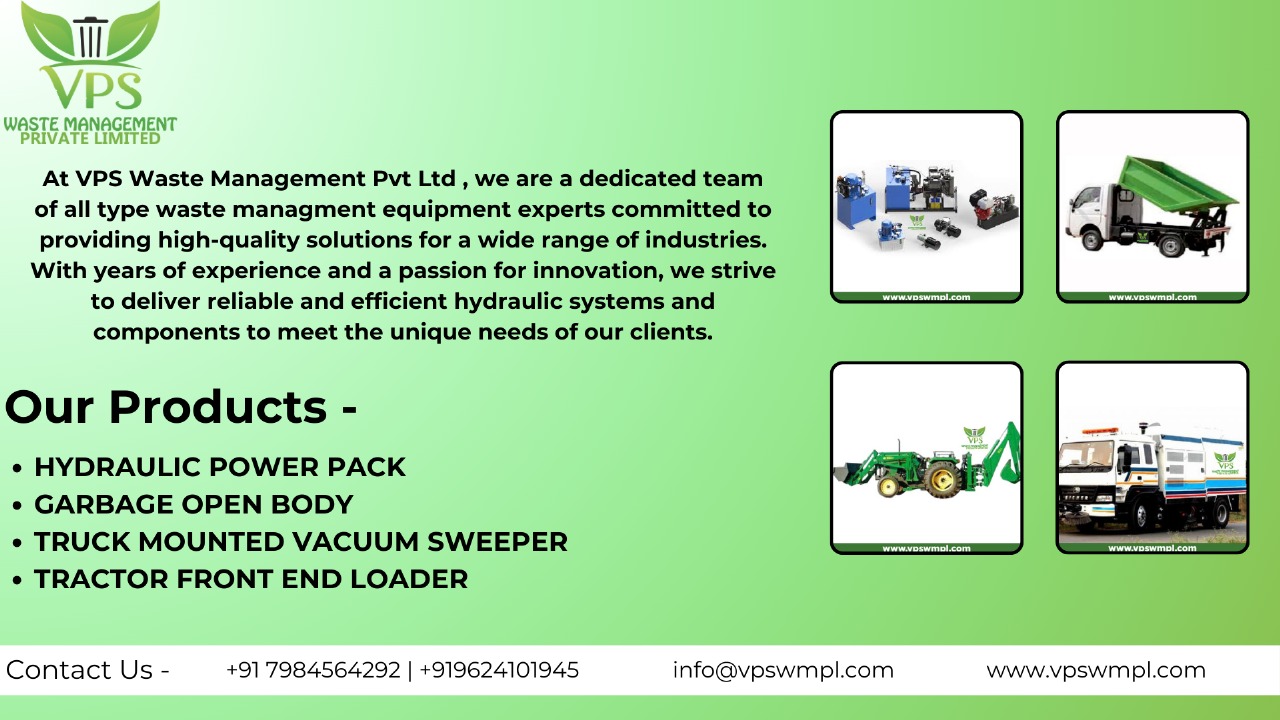Hydraulic Pump
A HydraulicPump is a mechanical device that converts mechanical energy into hydraulic
energy (fluid flow). It generates flow with enough power to overcome pressure
induced by the load at the pump outlet. Hydraulic pumps are essential
components in hydraulic systems, enabling the transfer and control of energy in
fluid-powered applications.
Common
types include gear pumps, vane pumps, and piston pumps,
each suited to different pressures and flow requirements. These pumps are used
across industries like construction, manufacturing, agriculture, automotive,
aerospace, and marine engineering to drive hydraulic cylinders, motors, and
other actuators.
10 Frequently Asked Questions (FAQs)
- What is a hydraulic pump?
It's a device that moves hydraulic fluid to convert mechanical energy into hydraulic power for machinery operation. - What are the main types of
hydraulic pumps?
Gear pumps, vane pumps, piston pumps (axial and radial), and screw pumps. - Where are hydraulic pumps
used?
In construction equipment, industrial machines, aircraft systems, and agricultural machinery. - How does a hydraulic pump
work?
It uses rotating gears, pistons, or vanes to displace fluid and create flow under pressure. - What fluid is used in
hydraulic pumps?
Special hydraulic oils with anti-wear and anti-foaming additives are commonly used. - What is the difference
between fixed and variable displacement pumps?
Fixed pumps have a constant flow rate, while variable ones adjust flow and pressure based on demand. - Can hydraulic pumps run dry?
No, they require proper lubrication from hydraulic fluidórunning dry can cause severe damage. - What are signs of a failing
hydraulic pump?
Noisy operation, reduced flow or pressure, overheating, fluid leaks, and slow actuator movement. - How is hydraulic pump
efficiency measured?
Efficiency is measured by comparing input mechanical power to output hydraulic power (volumetric and mechanical efficiency). - Do hydraulic pumps require
maintenance?
Yes, regular maintenance like fluid checks, filter replacement, and inspection for wear is essential.
Applications of Hydraulic Pumps
- Construction Equipment
Powers excavators, loaders, bulldozers, and cranes. - Agricultural Machinery
Operates hydraulic arms, plows, and harvesters. - Industrial Automation
Drives presses, injection molding machines, and conveyors. - Aerospace Systems
Used in aircraft flight control systems and landing gear. - Marine Vessels
Controls rudders, winches, and steering systems. - Mining and Drilling Rigs
Powers drills, lifts, and transport equipment. - Automotive Systems
Used in power steering and suspension systems. - Material Handling Equipment
Operates forklifts, hoists, and pallet jacks. - Wind and Solar Energy
Systems
Used in yaw and pitch control systems of turbines. - Railway Maintenance Machines
Powers rail grinders, tampers, and lifting jacks.
Benefits of Hydraulic Pumps
- High Power Density
Delivers powerful force in a compact design. - Precision Control
Enables accurate movement and load control. - Wide Range of Applications
Suitable for everything from mobile machinery to industrial tools. - Durable and Reliable
Built for heavy-duty, continuous operation. - Smooth and Quiet Operation
Modern pumps offer low noise and vibration. - Energy-Efficient Models
Available
Variable displacement pumps save energy by adjusting output. - Scalable for Small or Large
Systems
Works for small lab tools or large construction machines. - Low Maintenance with Proper
Use
Long lifespan with routine fluid and filter changes. - Handles High Pressure Easily
Operates effectively under extreme conditions. - Environmentally Adaptable
Works in harsh, hot, cold, and wet environments.
Contact
us more details:
Call: +91 7984564292 +919624101945
Email: vpswmpl@gmail.com info@vpswmpl.com
Address: Ahmedabad Office : Shed No. B-21, Shree Mahalaxmi Estate, Wandervat
Talav, Near Shankeshwar Estate, GIDC Vatva, Ahmedabad - 382440, Gujarat, INDIA

